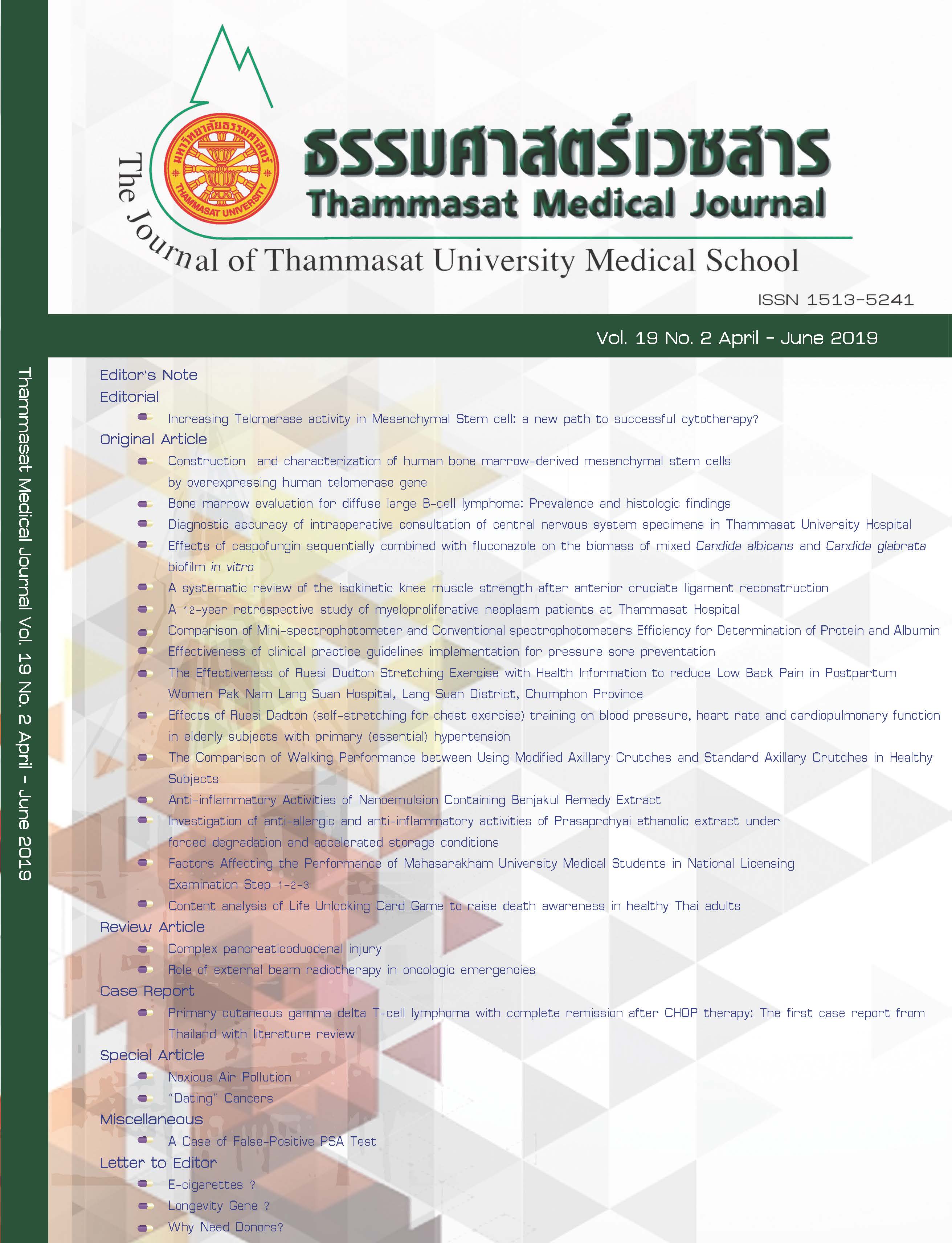Factors Affecting the Performance of Mahasarakham University Medical Students in National Licensing Examination Step 1-2-3
Keywords:
factors, national licensing examination, medical studentAbstract
Introduction: Knowing the related factors of academic achievement among medical students can guide to promote or help the students. This study aimed to determine related factors of performance in National Licensing Examination step 1-2-3 of Mahasarakham University medical students.
Methods: A retrospective descriptive study was done by collecting data from 1) academic department’s database e.g., preclinical course grades, test results 2) student affair department’s database and teachers interview e.g., behavioral problem, emotional problem, stressful event, underlying disease. Data were analyzed to find the related factors of each examination step.
Results: There were 289, 287 and 282 students (class of 2012-2017) who went to National Licensing Examination step 1-2-3. The numbers of the pass group in the first attempt were 190, 248 and 259. The related factors of passing exam step 1 were students who have positive classroom behavior, not much public activities involvement, no striking problems with behavior or emotion, no history of finance, family, or interpersonal problems during study; high admission sciences, Thai, and sociology scores; high grades on all of the basic sciences subjects, and yearly grade point average. The related factors of passing exam step 2 were students who have positive classroom behavior, no history of family problems during study; admission program; admission English, sociology and medical aptitude scores; and yearly grade point average. And the related factors of passing exam step 3 were students who have positive classroom behavior and yearly grade point average. The results after using binary logistic regression analysis showed that problems with interpersonal relationship; biochemistry, general pathology, pathophysiology, and medical physiology grades; and grade point average year 3 were related to step 1. While admission program and grade point average year 5 were related to step 2. After analysis, there were no related factors of step 3 in this study.
Conclusion: Interpersonal relationship problem, some basic sciences grades, grade point average year 3 and 5, and admission program were related to examination step 1-2. Faculty and teachers can apply these results to better student support system.


